China ties: Party games we have to play
Communist revolution in China had only one justification — setting the Chinese people free. Australia’s call for an inquiry threatens to expose a fraud that dwarfs COVID-19.
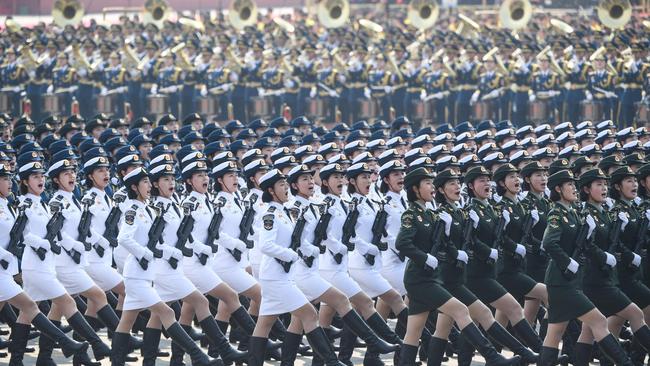
You can’t always get what you want. You can’t always get what you want. But if you try sometimes, well, you might find
you get what you need.
The Rolling Stones (1968)
-
We’ve been having a brouhaha with the Chinese embassy lately because the Morrison government called for an independent inquiry into the origins and initial handling of the COVID-19 virus in Wuhan. The inquiry call was entirely justified. To the imposition of trade penalties, we might well respond, “Barley, chum! What’s your beef?” We rightly seek clear answers to legitimate questions. Beijing’s bullying of a supposed friend means we need to keep our powder dry and think coolly about our strategy towards China in the light of its unprincipled behaviour.
Manifestly, Chinese ambassador Cheng Jingye’s masters are unlikely to comply with our request for an inquiry. Independent inquiries are not done in China as it is currently ruled, least of all under Master Xi. This isn’t just a matter of international inquiries; it’s a matter of the way political affairs in China are conducted. The party harasses, arrests and imprisons those who try to carry out independent inquiries. This has always been its modus operandi. We saw it at work again last summer, when it arrested and detained those who sought to draw attention to the outbreak in Wuhan or criticised President Xi Jinping for his handling of it.
READ MORE: China’s bid to control the internet
What, exactly, is it that we want from such an inquiry? And why is ambassador Cheng so exercised about the idea? It would be good to know where, exactly, the virus originated; who was patient zero; how and when the infection spread; how widely it spread; and what the mortality rate was. Naturally, we are also curious about why the Chinese authorities took so long to raise the alarm with the rest of us, why they appear to have scooped up global medical supplies to deal with it even while allowing millions of people from the infection zone to leave and head around the world, why they arrested whistleblowers and why they now are making outlandish claims that the virus did not originate in China at all but elsewhere — perhaps in the US.
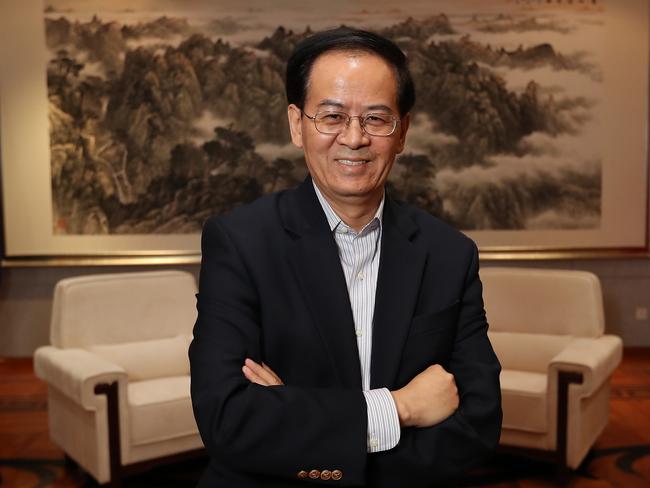
These last few things will, of course, be sensitive matters. Even Western democratic governments have been known to resist probes, especially from outside, into scandals or crises within their own jurisdictions. Our own agencies and corporations do so. Moreover, the noisy claims by some conspiracy theorists at the top of the Trump administration that the virus may well have originated in the Wuhan Virology Institute or even may have been allowed to spread deliberately have aggravated the situation. Some of the statements coming out of Washington have been quite inflammatory and we would do well to draw breath and think through what we can accomplish here, what we cannot and how we would be best advised to proceed.
From the Australian end, we need to remind ourselves that what the Morrison government has called for is merely what ought, in the circumstances, to be routine: a World Health Assembly-authorised inquiry into the origins and handling of the disease in Wuhan, perhaps extending to a careful documentation of how it spread around the world and where it has been most severe. The WHA is the governing body of the World Health Organisation, which itself needs to buttress its credibility after its own fumbling of the COVID-19 ball. A credible report at this juncture could do much to restore the WHO’s reputation and to clear the air with regard to the widespread distrust China has stirred against itself.
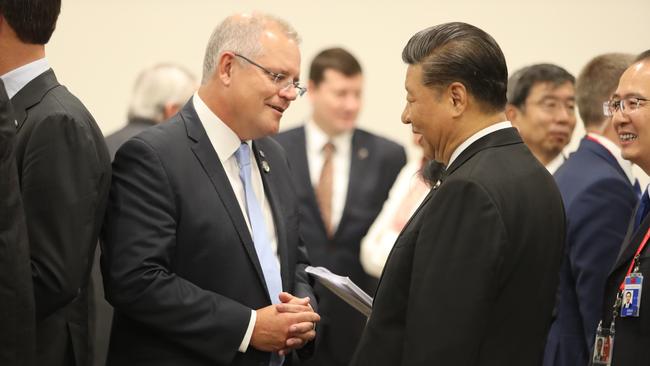
One might have thought that, if it wanted to look good after the January debacle, Beijing would have brought in the WHO and solicited a WHA report to clear things up. We might set them an example by holding an open inquiry into the research links between their bat virus scientists and the CSIRO. Perhaps that could set the ball rolling. Zhao Lijian of the Chinese Foreign Ministry, of course, has called for the US to be transparent, claiming perhaps the virus was brought into Wuhan by Americans. In other words, ambassador Cheng’s government isn’t opposed to inquiries. It just opposes any inquiry into its own handling of the pandemic.
It’s time we all understood that this is simply how the party functions when it comes to disasters in China and “state secrets”. Its behaviour internationally mirrors its inveterate domestic behaviour. It still covers up massive abuses, going all the way back through its history. The most egregious case is the gigantic famine that occurred in China between 1958 and 1962 as a direct consequence of policies imposed on the country through the personal dictatorship of Mao Zedong, enforced by the party machine. As Richard McGregor pointed out a decade ago, in his first-rate study The Party: The Secret World of China’s Communist Rulers (2010), it took the dedicated Chinese journalist Yang Jisheng “nearly two decades of painstaking research”, acting on his own and in secret, “to compile a minutely chronicled, incontrovertible account of the death by starvation of 35 to 40 million Chinese over three years from 1958, a tragedy the party has long sought to cover up. By Yang’s estimation, the birthrate was down by a further 40 million or so babies in the same period”, because women and their partners were “too weak or too ill to conceive”.
It’s staggering that after all these years the Chinese state could still keep that matter from open discussion among its own citizens, but it does.
READ MORE: US would lose Pacific war with China, Pentagon war games reveal
Yang’s book, published in New York in 2012, with an introduction by distinguished Sinologists Edward Friedman and Roderick MacFarquhar, is called Tombstone. Yang wrote of his experience researching this horrific story: “I felt like a person going deep into a mountain to seek treasure, all alone and surrounded by tigers and other beasts.” His was an independent inquiry and he found quiet collaborators, both inside and outside the party, along the way.
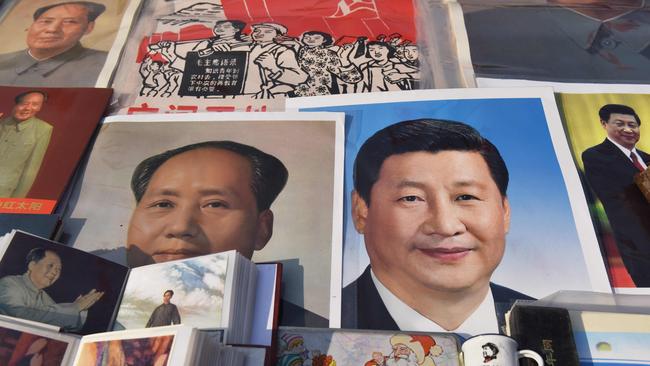
A key lesson here, and one we should not shrink from pointing out to ambassador Cheng, is that we cannot expect the party to tell the truth but we can look to principled Chinese scholars, journalists and dissidents to dig it out and share it with the rest of us. That’s why the party arrests and disappears its own best citizens, as it did in Wuhan in December and January. We look to a time when the government of that country will be more honest with its own people and with the rest of us.
Another reason, however, why the Great Leap famine is a good case study to reflect on right now is that the catastrophe, even though publicly denied and covered up by the party, triggered some serious rethinking of economics and politics inside the leadership.
Expatriate Chinese scholar Dali Yang, born in Shandong province in the immediate wake of the famine, pointed out in his groundbreaking 1996 book Calamity and Reform in China that the seismic impact of this famine convinced senior party hardheads such as Liu Shaoqi and Deng Xiaoping that Mao’s economic vision and personal dictatorship were disastrous for China and that reforms were needed.
The party’s own internal and classified study of the famine reported that 42 million to 43 million people had died. Yet as Dali Yang observed decades later, “with rare exceptions, archives on the Great Leap famine remain tightly guarded”. His core finding, beautifully argued, was that “out of the ruins of the Great Leap famine arose the incentives for political innovation or reform”, even if they were possible only over Mao’s dead body. Those reforms, so promising in the 1980s, have been wound back under Xi. A key reason for the party’s sensitivity about an independent inquiry is that it knows very well the implications of its own findings and does not want to have them aired at home or abroad. It’s jittery.
We should not reassure it. Our friends in China are those who seek greater openness and liberalisation. Here are our guidelines:
● Dissidents and responsible investigators in China right now will know things and be documenting them, despite the party’s repression.
● The party has conducted its own careful inquiries and knows in detail what happened.
● Xi is not allowing outsiders, whether in China or abroad, to learn what the party learned because it would discredit the dictatorship.
The key to the global situation is that the consequences of the party operating as it does have been driven home to the rest of the world and, therefore, cannot be passed over as if repression, lies and lack of accountability are just somehow the Chinese way of doing things.
They aren’t. These things did not happen in Taiwan and Taiwan is the canary in the coalmine in this regard. This is the party’s way of doing things. It’s just that, for once, we are not mere onlookers but are suffering the same things that the ordinary people of China have had to suffer for 70 years. Don’t be distracted by the mess in the US. They have a presidential election in November. There are no such elections in China.
We need a strategy for dealing with the party that treats it based on how it actually functions, instead of pretending that it is just doing a heroic job under challenging conditions and rebuilding a “humiliated” China. When Cheng tries to bully us out of inquiring, he is doing what the party bosses did in 1989, when they instructed the huge numbers of peaceful demonstrators in Tiananmen Square (and elsewhere across the country) to disperse and cease and desist from demanding democratic reforms. This was a source of internal division within the party at the time, but the bullies won and sent in the tanks — then pretended it hadn’t happened and have airbrushed it out of history courses or media coverage in China ever since.
The resigned and accommodating among our old China hands or in the mining sector may say that we can’t change the way China is governed and we need to be able to conduct workable relations with it, so we should refrain from offending the party. But in the present circumstances that doesn’t cut it. We need to rock back on our feet and take stock here. What is the optimal strategy for us, given we are unlikely to get what we want, if we are to get what we need? This is a matter of some urgency. Xi has dashed our long-cherished hope, clung to well after the massacre of the innocents in Tiananmen Square, that the party would liberalise as the country prospered. We have nothing to hope for from him and must accustom ourselves to playing economic and strategic hardball, because that is the way he is playing the game.
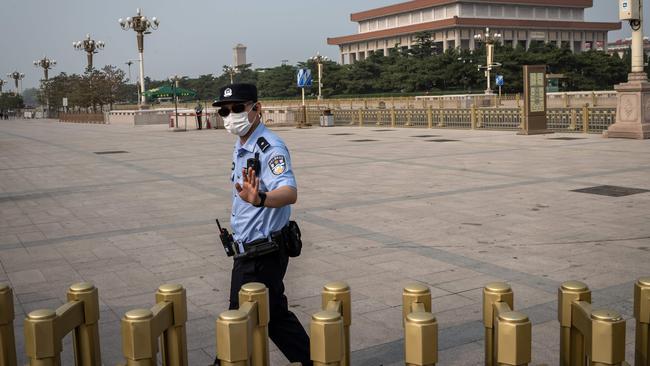
The answer is that we need to be willing to think through, around, against and beyond the party — but be pro-China. We must differentiate between the party’s propaganda and our own hard-headed analysis; assume that the actual thinking inside the party is at variance — even widely so — with its public rhetoric; and work to open the space for institutional reform in China, based not on abstract or utopian ideals but on close analysis of the pragmatics of trade, investment, strategic manoeuvre and the stresses within the Chinese state. In doing this, we can and should have China’s authentic good at heart.
We need also to work hard at buttressing and living up to the core commitments of the endangered liberal world order.
A lodestone in our stocktaking should be the memoir of former Chinese premier Zhao Ziyang, written in secret, under house arrest, after he was unconstitutionally ejected from office in 1989. It had to be smuggled out of China to be published at all — after his death on January 17, 2005.
Zhao wrote that he had concluded: “If a country wishes to modernise, not only should it implement a market economy, it must also adopt a parliamentary democracy as its political system … territories or nations such as Taiwan and South Korea have gradually made the transition from their old systems to a parliamentary system and have had positive experiences that we would benefit from studying.”
He added: “If the final destination is a parliamentary democracy, the ruling party must achieve two breakthroughs. One is to allow other political parties and a free press to exist. This can happen gradually, but it must be pursued. The second breakthrough is having democracy within the party: that is, the party needs to adopt democratic procedures and use democratic means to reform itself.”
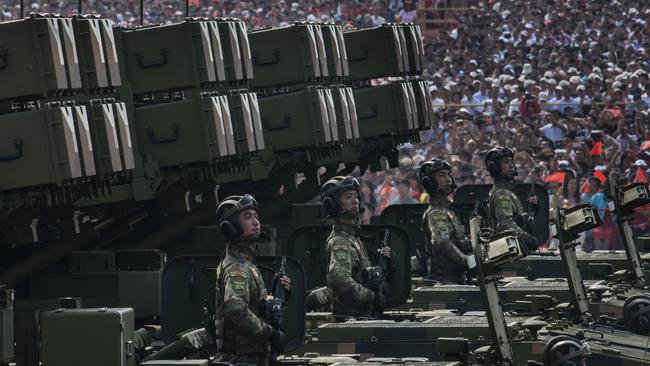
The problem, of course, is that Xi is explicitly disavowing any such aims and is governing China on the basis of a cult of personality and totalitarian dictatorship, as Mao did.
The immediate future will be challenging, but our reference point must be a clear principle: the communist revolution in China had only one justification — setting the Chinese people free. In the nature of the case, the party — to say nothing of Xi — has no justification for presuming that it or he can be the judge of whether the Chinese people are free. The people must judge — that’s what democracy means. There is a transparent fraud entailed in asserting that the party is the only feasible guarantor of the country’s freedom and future prosperity, then taking the most condign measures to prevent any other guarantor or even critic from emerging into the realm of legitimate politics in the name of freedom and prosperity.
Our call for an independent inquiry into COVID-19 throws this into high relief. But we must proceed with two things in mind: we want a constructive relationship with a prospering China and, almost certainly, constructive change inside China. That will require even more patient, exacting, shrewd dialogue with its rulers and their subjects than we have conducted in the past few decades. If we are to conduct that dialogue, we need our own deeply informed, strategically adroit and properly co-ordinated strategy. A few of the elements of that have been put in place in the past few years.
We need now, quietly and efficiently, to deepen our strategic competence, China analysis and economic flexibility — without allowing the party to intimidate, exhaust or entrap us; and without undermining our own position by appeasing its bluster. We must play for time, strategic position and the rebalancing of the global liberal order.
Paul Monk is a former head of the China desk in the Defence Intelligence Organisation and the author of Thunder from the Silent Zone: Rethinking China (2005) and Dictators and Dangerous Ideas (2018).


To join the conversation, please log in. Don't have an account? Register
Join the conversation, you are commenting as Logout